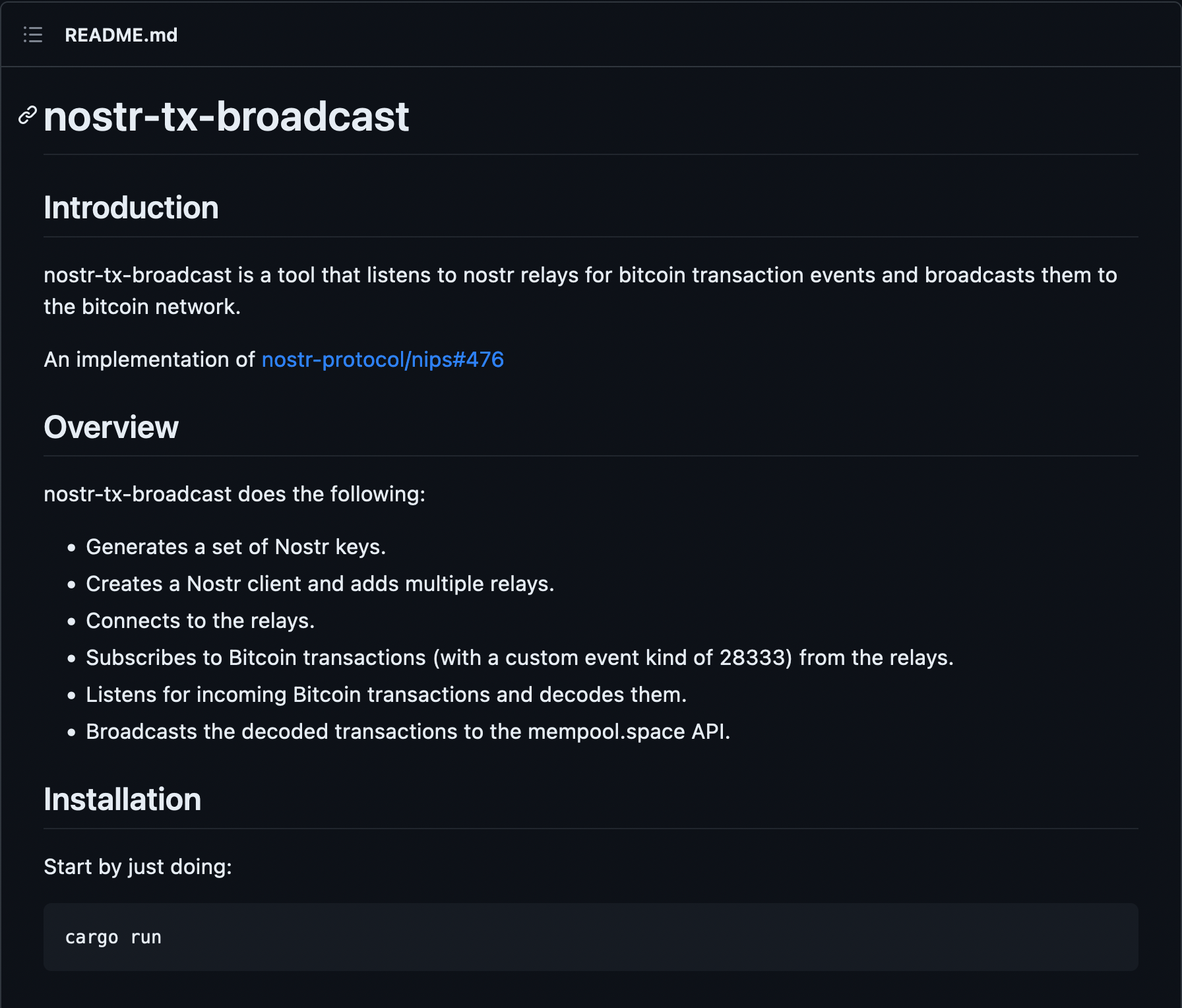

To any of the freedom hating governments out there reading this on our dirty corner of the internet, good luck!


If bitcoin is to be successful in avoiding being co-opted by the government in the long-run, it is going to need to be sufficiently robust. The robustness of the bitcoin network materializes in many ways. More people running and using nodes makes bitcoin more robust. More people owning hashrate while being sufficiently geographically distributed makes bitcoin more robust. More mining pools makes bitcoin more robust. More people controlling their private keys makes bitcoin more robust. And increasing the ways that bitcoin transactions are relayed and broadcast to the network makes the network more robust, which is what your Uncle Marty would like to highlight in today's rag.
Over the last week there have been two developments that, if implemented and widely adopted, would serve to make transaction relay and broadcasting significantly more robust for bitcoiners.
The first is Ben Carman's nostr-tx-broadcast, which is a tool that allows individuals to leverage the open source distributed communications protocol to relay their transactions instead of broadcasting from their own wallet or node. This would allow users to increase their privacy when broadcasting transactions to the network. Right now, if you're not using Tor, broadcasting transactions is a bit of a privacy leak because you expose your IP address to other nodes or the wallet software provider broadcasting on your behalf. By leveraging nostr-tx-broadcast to broadcast a transaction via a Nostr note associated with a pseudo-anonymous Nostr pubkey a user is granted a layer of privacy that doesn't connect their transaction broadcast with their IP address. Transactions are broadcast by a bot scraping Nostr notes for bitcoin transactions. A very creative way to combine bitcoin and Nostr to make bitcoin more robust.
The second development is a proposal called LNMesh from a group of researchers (Ahmet Kurt, Abdulhadi Sahin, Ricardo Harrilal-Parchment, Kemal Akkaya) that would give users the ability to send and receive payments via the lightning network offline via a mesh network leveraging Bluetooth technology. This adds a layer of robustness to the bitcoin stack by giving users an alternative avenue to transact with each other if the internet ever goes down or if they simply live in an area that doesn't have access to the internet at all. Being able to send and receive using a mesh network running on relays leveraging Bluetooth makes it significantly harder to kill bitcoin. Transaction relay via mesh networks has been something we've written about in this rag many times over the years and we are very happy to see that there are researches taking the time to bring actionable proposals to market. The only thing left to do is actually implement the proposal, which is easier said than done.
As the banking system continues to falter and the US debt situation becomes more and more precarious, it is incredible to see individuals and teams working hard to ensure that bitcoin is as robust as possible so that individuals can transact more privately and more reliably when despotic governments inevitably try to stamp it out. Unfortunately for the despots, every day that bitcoin survives and every tool like the two above that come to market make it just a bit harder to kill.
To any of the freedom hating governments out there reading this on our dirty corner of the internet, good luck!
Final thought...
Long walks in the middle of the day are a great way to get the synapses firing.


